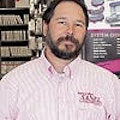In a previous column I wrote about the city of Denver trying to mandate that all motorcycles have OEM exhausts. The law as proposed didn't spell it out in those terms, but in most cases that was the only solution to avoid a citation. In discussing this with some others in the industry, a few additional "what ifs" were mentioned.
When Henry Ford made the automobile affordable to the average man, the average man soon realized that ownership meant maintenance responsibilities. In fact, the entire aftermarket parts and repair industry can trace its roots back to that point in time. And we've done it pretty much free of government regulation and intervention ever since.
Free market forces have allowed anyone with the desire and know-how to prosper. This also has allowed DIYers to pursue any type of repair they want to tackle.
Now compare that to what the owner of a small plane experiences. Unless they have an Airframe and Powerplant repair certificate, they can't do anything more than what the Federal Aviation Administration (FAA) terms "preventive maintenance." This limits them to changing oil, light bulbs and tires; just about everything else must be signed off by a licensed A & P mechanic. Regulations also dictate that detailed maintenance records be kept for the life of the aircraft, and only parts deemed airworthy by the FAA may be used in those repairs.
Certainly this type of regulation is necessary; the consequences of a repair or part gone bad in midair can be disastrous. But is it really any more dangerous than the car that loses its brakes or a steering component at 75 mph on a crowded freeway? Sadly, the end result of botched repairs and poorly designed replacement parts used on either type of vehicle have the potential to harm someone other than the person who did the work.
You can argue that an aircraft is more complicated than a car, but I don't think that's true anymore. Most light airplane systems still are mechanical, while automotive systems are increasingly electronic, controlled by microprocessors and difficult to diagnose without the proper tools and training.
I'm not advocating any more government intrusion in our lives, but I'm not sure how long it can be delayed. Will ever-tightening environmental regulations calling for cradle to grave tracking of solvents and paints put an end to the hobbyist painter or amateur restorer? Will we see private vehicles put out of service due to unapproved parts used in a repair? Just ask any driver of an air brake equipped truck what happens if a roadside inspection finds the brakes out of adjustment or hoses lacking the Department of Transportation's seal of approval. Unless they have the right replacement parts and the certificate that says they are qualified to repair or adjust those brakes, the truck sits.
No matter what the future brings for the aftermarket, things will be much different than they are today. Right now, the regulators are nibbling at the edges, targeting small segments of the transportation industry. But at some point, their sights will settle on private transportation. The ideal solution is self-regulation from within the industry. But are we willing to do what's necessary for this freedom by not always putting profit at the forefront, or will we wait until it's too late and fight a defensive battle instead?
Mike Gordon, a 20-year counter sales veteran, works the counter at Sanel Auto Parts, Concord, N.H.
About the Author
